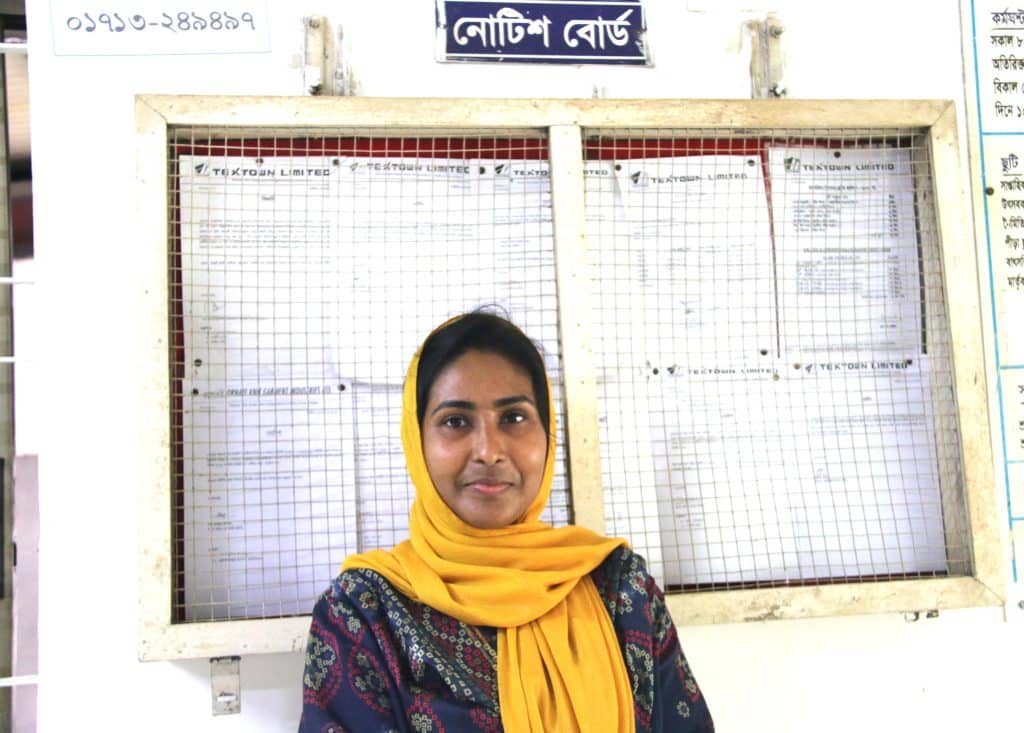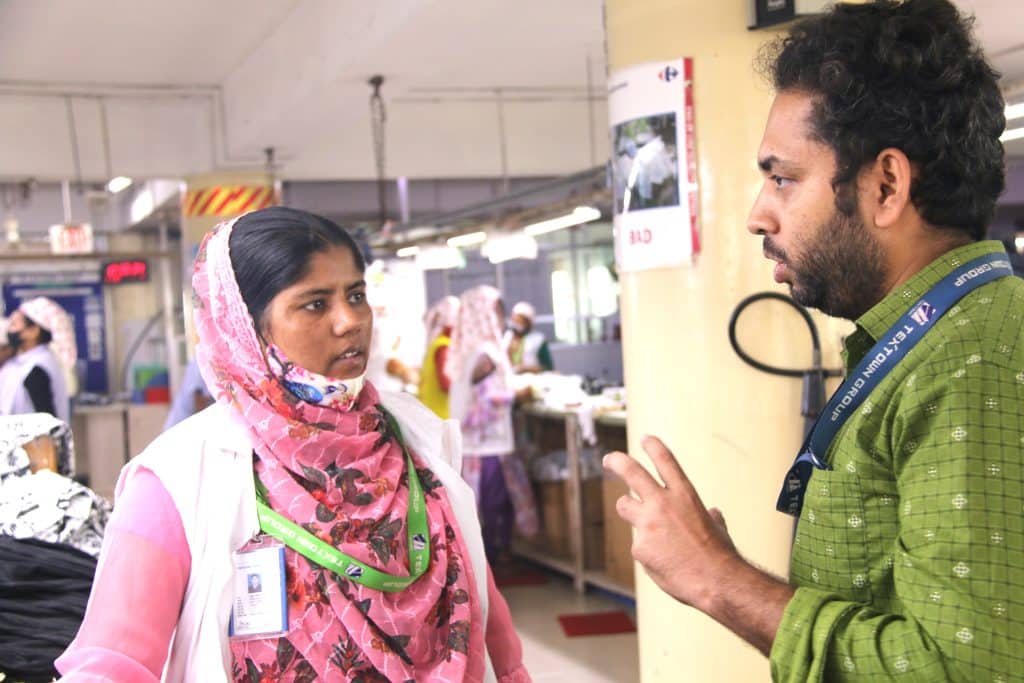“During the unrest in August 2024, our workers were peaceful. We closed the factory for only three to four days considering the security of our workers. Wages were paid to all employees for those days,” said Nargis Akhter, Welfare Officer at Textown Group.
Textown Group’s factories are in Ashulia on the outskirts of Bangladesh’s capital city, Dhaka. The company employs over 2900 workers who produce ready-made garment items for European and Australian markets.
Bangladesh has been experiencing social and economic instabilities leading up to, and since, a change in government in August 2024. During the past months, labour protests have gripped the country’s garment industry, resulting in the death of at least one worker, while leaving numerous injured and several factories shut. Textown is one of the few factories which continued to operate despite disruptions in the industrial areas.
Textown has an active participation committee (PC) comprising of 12 members (six from workers, six from management) who meet every two months. A PC is a legally mandated platform for discussion and dialogue between workers and management at the enterprise level, though having an active union is ideal.

Mohsin Ali is a Senior Scissorman and PC member at Textown Group. He said, “During the recent unrest, our PC handed written demands of the workers to the Welfare Officer. Soon after, she called us to meet with the Compliance Department. The compliance officials assured that they will give us the same facilities received by workers from neighbouring factories.”
Ayrin Begum works in the Quality Control Department of Textown Group. She resonated Mohsin’s statement. “We had the same demand as other factories during the unrest. The floor management and compliance department listened to the PC. They also granted us paid leave to ensure our security.”
Abu Zafar Md Shaleh, Head of the Industrial Engineering (IE) department at Textown Group noticed that the PC in his factory became stronger after Textown enrolled with the ILO-IFC’s Better Work Bangladesh (BWB) programme in 2017.

With the aim to improve working conditions and competitiveness in partner factories, Better Work has provided assessment, advisory and training services to Textown’s management and workers’ representatives over seven years to enhance their capacity on grievance mechanisms, industrial relations, workplace cooperation, crisis management, problem solving, facilitation skills, and workplace harassment and violence.
During the period of unrest in Bangladesh, significant disruptions occurred in factory operations, export activities and the broader supply chain. The situation highlighted the need for proactive measures, including robust social dialogue and adherence to workers’ rights to minimize the impact of such crises.
Throughout, Better Work Bangladesh maintained communication with its partner enterprises, where possible. BWB’s Enterprise Advisors addressed queries from factories regarding workers’ payments during curfews and general holidays, including payments for non-production workers like security guards who remained on duty. Better Work also encouraged the factories to engage in social dialogue to prevent future conflicts and supported communication efforts for prompt wage disbursement and addressing of workers’ grievances.
Manager of HR, Admin & Compliance at Textown Group Abdul Awal Azad said, “Textown followed the directive of Bangladesh Garment Manufacturers and Exporters Association (BGMEA) to address the demands of the workers during the unrest. A functional PC helped us to identify the demands, necessities and complaints of the workers on time. Having such a platform of dialogue has made our work environment healthier.”
Azad also recognized the support from BWB. “Earlier, I used to get defensive and argue when Better Work identified a problem in our factory. My mindset has changed. I learned that problems shouldn’t be avoided, rather identified and analysed to find out their root causes and then reach a solution.”
Shaleh adds, “When workers and employers stick to their ego, frictions take place. Dialogue leads to cooperation in the workplace.”